Search Results
Search
Filter results
Advanced Filters
Your search returned 98 Solutions
-
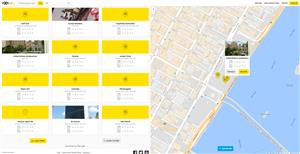
The playful way to create accessibility maps
The free app features a gamification element called "AXS Mapathons," whereby teams compete against each other in real time while rating venues in their community on their accessibility. Google supports AXS Map through their annual volunteer programme, Google Serve. By mid of 2017, ASX Map had 100,000 users in 200 cities.
AXS Map, United States of America -
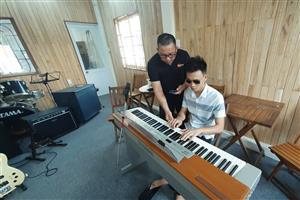
Blind programmers developing free software for blind users
In 2015 the Sao Mai Vocational & Assistive Technology Center for the Blind started developing software for blind users. By 2020 three products were released and are available free of charge: SM Braille, the Burmese TTS engine, and the SM Music Reader. The positive response is reflected in the increasing number of monthly downloads.
Sao Mai Center for the Blind, Vocational and Assistive Technology Center for the Blind, Vietnam -
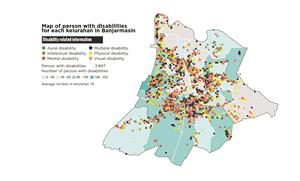
Participatory collection of disability data in cities to improve public service
Kota Kita, an NGO from Solo City, Indonesia, generates a disability-inclusive profile of cities by collecting differentiated data in real time using a geo-tagging app. By involving people with disabilities, the results provide a basis for cities to take action to make them more disability-friendly.
Kota Kita, Participatory Approach for Disability-Inclusive Cities Indonesia/Disability-Inclusive Cities Indonesia, Indonesia -
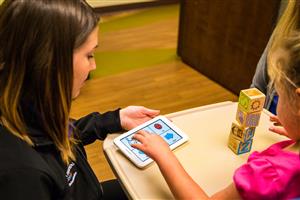
Alternative communication platform for people with learning difficulties
The Livox app enables users with speaking or learning difficulties to communicate using virtual cards with pictures or illustrated short phrases. The app can be operated noth by blinking and by speech. The app is self-learning and also features a content creator to add communication cards with videos, pictures and music.
Livox, Livox, Brazil -
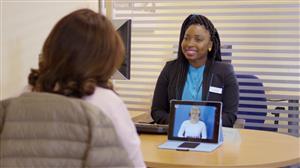
Video sign language interpretation for bank customers
The SignVideo app enables Barclays Bank staff to connect to a interpreter giving them and customers who are deaf or hard of hearing the possibility to speak with each other without actually having an interpreter physically present. In the year 2016, the service was available in all Barclays Bank branches in the UK.
Barclays Bank, United Kingdom -
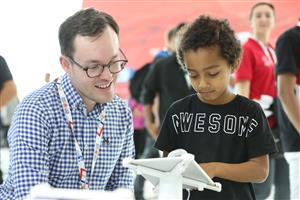
Teaching sign language with videos, Artificial Intelligence, and gamification
SignLab uses video, Artificial Intelligence, and gamification to teach sign languages more effectively and affordably. The online and offline platform has quadrupled the number of people learning Norwegian sign language since 2018, and it will introduce Chinese, Indonesian, and Indian sign languages by 2022.
SignLab AS, SignLab - Toleio, Norway -
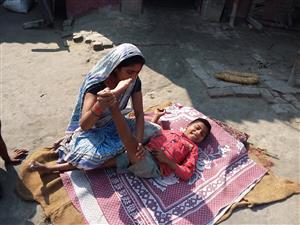
E-Health improving the quality of services for children with disabilities in the rural area
Sambhav is a web/app solution introduced by Jan Vikas Samiti, an NGO based in Northern India. It supports community-based rehabilitation services for children with developmental disabilities in rural communities, in partnership with local organizations, local health workers who are trained and supported remotely by specialists.
JAN VIKAS SAMITI, Project Sambhav, India -
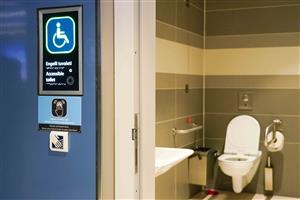
International airport that provides a diverse accessible airport experience.
IGA Cares is an Istanbul Airport programme that includes a broad variety of measures and services to make the airport accessible for all. Services include a navigation app, info kiosks in sign language, and a map that gives people who are particularly sensitive to noise access to quiet spaces.
Istanbul Airport, IGA Cares, Turkey -
Improving research and training on urban accessibility and Universal Design
The project involves publishing research on Universal Design, improving the curricula and training of planners and surveyors undertaking university study, plus assessing cities on accessibility criteria. As of 2019, two studies and one paper have been published, and four university courses have been modified.
University of Belgrade, Faculty of Architecture, Teaching Universal Design, Serbia -
Outdoor and indoor orientation for people who are blind
The app uses audible messages to provide users with information about their location, pointing out street junctions and reporting on places of interest, such as businesses, institutions, etc. If required, it can also guide the user to a specific point. By mid-2017 Lazarillo had already more than 7,000 users in 14 countries.
Lazarillo Tec SpA, Chile